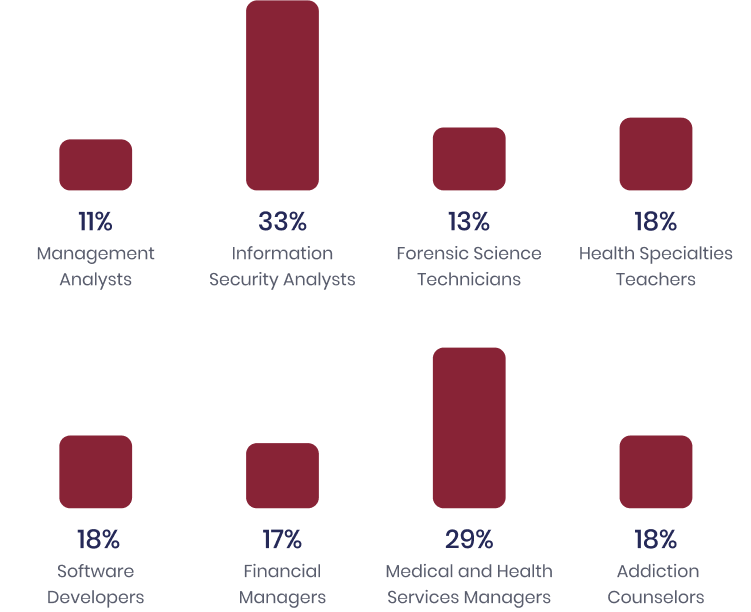STEM careers offer exciting opportunities in science, technology, engineering, and mathematics fields. These roles are at the forefront of innovation and problem-solving, shaping our future in countless ways. STEM careers span a wide range of industries and offer competitive salaries, with many positions having strong job growth prospects.
Emerging Fields in STEM
Artificial Intelligence and Machine Learning
- Programming languages (Python, R)
- Statistical analysis
- Deep learning frameworks (TensorFlow, PyTorch)
- Problem-solving
Biotechnology and Biochemistry
- Developing new pharmaceuticals
- Creating sustainable biofuels
- Improving crop yields through genetic engineering
- Designing bioremediation techniques for environmental cleanup
Environmental Science and Sustainable Technologies
- Renewable energy systems (solar, wind, geothermal)
- Water conservation and treatment
- Sustainable urban planning
- Ecosystem restoration
Find Your Online STEM Program
Essential STEM Careers
Software Development and Information Technology
Engineering Roles and Specializations
Data Analysis and Statistics
Did You Know?
The Bureau of Labor Statistics estimates higher growth rates than average in these STEM fields and is projected to grow by 10.4% by the year 2033. An estimated 11,104,000 jobs will need to be filled in the U.S. by 2033 and the median annual salary for these occupations was $101,650 in 2023.

High school graduates earn on average
$899 per week

Bachlelor’s graduates earn on average
$1,493 per week

The Intersection of STEM and Healthcare
Medical Scientists and Healthcare Technology
Medical scientists conduct research to enhance human health. They use STEM skills to develop new treatments and medical devices. You’ll find them working on cutting-edge technologies like gene therapy and personalized medicine.
Biomedical Engineering
Your STEM degree can lead to diverse career paths in healthcare. As a biomedical engineer, you might:
- Create artificial organs for transplants
- Develop advanced imaging technologies like MRI machines
- Design rehabilitation devices for patients with disabilities
Find Your Online STEM Program
Skills and Education Pathways in STEM
Advancing Your STEM Education
STEM education offers multiple pathways to suit your interests and career goals. You can start by taking STEM and career technical education courses at the secondary level.
